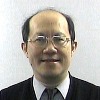With the recent appointment of Xi Jinping as CCP General Secretary and Chairman of the Central Military Commission, his tenureship is likely to be marked by a “renaissance of the Chinese race,” writes Willy Lam.
Every major Chinese leader since the end of the Cultural Revolution (1966-1976) has spelled out a clear-cut slogan – and a call to arms to citizens and officials alike. With Deng Xiaoping, it was simply “to get rich is glorious.” Jiang Zemin, who was supremo from 1989 to 2002, argued that the Chinese Communist Party (CCP) should “represent the highest productivity, the loftiest culture and the interests of the masses.” Then Hu Jintao, the just-retired party General Secretary, proclaimed his “scientific theory of development,” which is short hand for efforts to preserve social justice and quality of life in the pursuit of GDP growth.
Xi Jinping, who became CCP General Secretary and Chairman of the Central Military Commission (CMC) on November 15, may already have coined the motto for his probable 10-year tenure. It is none other than:
“To realize the Chinese dream by bringing about the renaissance of the Chinese race.”
This is a 21st-century version of the age-old pursuit of fuqiang or “wealth and strength” for a nation that suffered no end of colonial humiliation in the 19th and 20th centuries.
Much of what Xi plans to do at least in his first five-year term (2012 to 2017) was made clear during a five-day visit last month in December to Guangdong Province, which first experimented with late patriarch Deng Xiaoping’s market-style reforms in the early 1980s. As though to dispel rumors that the newly elected Politburo Standing Committee is stacked with conservatives, Xi proclaimed himself to be an heir to Deng, the Chief Architect of Reform.
“There will be no stop in reform, no slackening in the open-door policy,” said the 59-year-old supreme leader.
Xi told local cadres, including retired senior cadres who had worked for Deng in the 1980s and 1990s, that “the policy of reform and opening up is correct.” “We will not only persevere with reform policies but will also break new ground [in this area],” he added.
Xi, who had served in senior positions in the coastal provinces of Fujian and Zhejiang, is keenly aware of the need for restructuring the economy. While discussing possible new locomotives of growth with a group of Guangdong entrepreneurs, Xi pledged that his administration would “resolutely and unhesitatingly push forward systematic innovation and technological innovation.” he said. “We must implement the strategy of using innovation to drive development, and push forward structural changes in economic development,” he added.
The exact contours of China’s new economic strategies will not be announced until the National People’s Congress meets in March. On that occasion, Executive Vice-Premier Li Keqiang, who is ranked No. 2 in the Politburo pecking order, will be confirmed Premier. Senior government officials such as the vice-premiers and the state councilors, as well as the new Governor of the People’s Bank of China and Finance Minister will also be named when the Chinese parliament is convened.
Apart from the economy, the world’s attention is focused on whether Xi, who has close links with the People’s Liberation Army (PLA), will push a more pro-active policy in projecting China’s hard power overseas.
During his Guangdong tour, Xi, who worked as a junior cadre in the CMC General Office from 1979 to 1982, also spent time with officers in the PLA’s Guangzhou Military Region (MR). The Guangzhou MR is responsible for safeguarding Chinese interests in the South China Sea, which is Asia’s premier flash point in view of rival sovereignty claims between China on the one hand, and Taiwan, Vietnam, Malaysia, Brunei and the Philippines on the other.
“We must insist on pushing forward preparations for military struggle under the criterion of combat [readiness],” Xi told the senior brass in Guangzhou. “We should ceaselessly strengthen among officers and soldiers the principle that soldiers join the PLA for the sake of fighting wars, and officers must provide leadership and training for warfare.”
“We must uphold the principle of providing tough and severe training to our troops under the conditions of real warfare,” the CMC Chairman said, adding that China should boost its ability to win regional wars under high-tech, IT-oriented conditions.
Xi, who is a firm believer in Chairman Mao Zedong’s famous theory about “the synthesis of the requirements of war and peace,” also indicated that his administration would aim for the “unity [of the concepts] of building a rich country and nurturing a strong army.”
Party sources in Beijing said, however, that Xi, who will be in charge of China’s foreign policy, was inclined toward using the “economics card” to settle sovereignty disputes with Asia-Pacific countries ranging from Japan to Vietnam and the Philippines. This means in essence that despite the pugilistic rhetoric, Xi is prone to adopt Deng’s formula for resolving differences with China’s neighbors: “focus on joint development [of resources] while temporarily setting aside issues of sovereignty.”
Much also depends on China’s fast-evolving relationship with the United States. Xi, whose daughter is studying at Harvard University under an assumed name, has visited the US several times. The party sources said despite the intensifying rivalry between China and the US in the Asia-Pacific region, Xi is aware of the symbiotic economic ties between the superpower and the rapidly rising quasi-superpower. ■

















